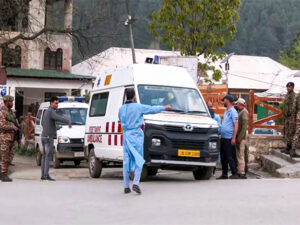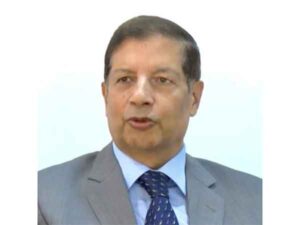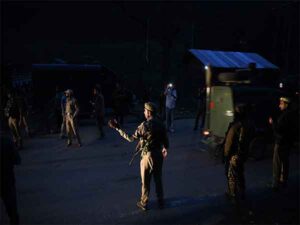Fourth Indian arrested in Canada for his suspected role in killing of Khalistan separatist Nijjar
Washington/Ottawa, May 12 (PTI) A fourth Indian national has been arrested by Canadian authorities in connection with the killing of Khalistan separatist Hardeep Singh Nijjar, a week after police arrested three Indians linked with the high-profile case that has severely strained India’s relations with Canada.
Amandeep Singh, 22, a resident of Brampton, Surrey, and Abbotsford areas of Canada, has been charged with first-degree murder and conspiracy to commit murder.
Nijjar, 45, was killed outside Guru Nanak Sikh Gurdwara in Surrey, British Columbia on June 18, 2023.
The Integrated Homicide Investigation Team (IHIT) of the Royal Canadian Mounted Police (RCMP) said that Singh was arrested on May 11 for his role in the killing of Nijjar. He was already in the custody of the Peel Regional Police for unrelated firearms charges, the release said.
“This arrest shows the nature of our ongoing investigation to hold responsible those that played a role in the homicide of Hardeep Singh Nijjar,” said Superintendent Mandeep Mooker, the Officer in Charge of IHIT.
“IHIT pursued the evidence and gained sufficient information for the British Columbia Prosecution Service to charge Amandeep Singh with first-degree murder and conspiracy to commit murder,” the police statement said.
Investigators said no further details of the arrest can be released due to ongoing investigations and court processes.
Citing a source familiar with the case, the Global News reported that Singh is believed to be one of the two armed men who opened fire on Nijjar. The shooters were then seen running to a getaway car.
Like his co-accused, Singh arrived in Canada on a temporary visa, but was allegedly involved in violent crime, the source said.
The four hitmen are suspected of links to the Bishnoi gang, it added.
Singh was one of five men charged with firearms and drug offences following a traffic stop in Brampton by the Peel police Specialized Enforcement Bureau on November 3, 2023.
During the arrests, police seized an FN 509 9mm pistol with a 24-round extended magazine, and two extended magazines with 24-round capacities containing 9mm ammunition, police said at the time.
IHIT investigators on May 3 arrested three Indian nationals — Karan Brar (22), Kamalpreet Singh (22) and 28-year-old Karanpreet Singh — for the murder of Hardeep Singh Nijjar.
All three individuals are Indian nationals living in Edmonton and have been charged with first-degree murder and conspiracy to commit murder.
The ties between India and Canada came under severe strain following Canadian Prime Minister Justin Trudeau’s allegations in September last year of the “potential” involvement of Indian agents in the killing of Nijjar.
India has dismissed Trudeau’s charges as “absurd” and “motivated.”
Nijjar was a Khalistani separatist and he was wanted in India on various terror charges.
Days after Trudeau’s allegations, India asked Ottawa to downsize its diplomatic presence in the country to ensure parity. Subsequently, Canada withdrew 41 diplomats and their family members from India.
India has been asserting that its “core issue” with Canada remained that of the space given to separatists, terrorists and anti-India elements in that country.
Following Trudeau’s allegations last year, India temporarily suspended the issuance of visas to Canadian citizens. The visa services were resumed several weeks later.
External Affairs Minister S Jaishankar has said that by allowing political space to Khalistani separatist elements, the Canadian government is sending a message that its vote bank is “more powerful” than its rule of law.
In an exclusive interview to PTI on Thursday, Jaishankar said India respects and practices freedom of speech, but that does not equate with freedom to threaten foreign diplomats, extend support to separatism or allow political space to elements advocating violence.
He also wondered how people with dubious backgrounds are being allowed to enter and live in Canada, referring to Khalistani supporters among the Sikh migrants from Punjab.
“In any rule-based society, you would imagine that you would check people’s background, how they came, what passports they carried etc,” he said.
“If you have people whose presence there was itself on very dubious documents, what does it say about you? It actually says that your vote bank actually is more powerful than your rule of law,” Jaishankar said.






